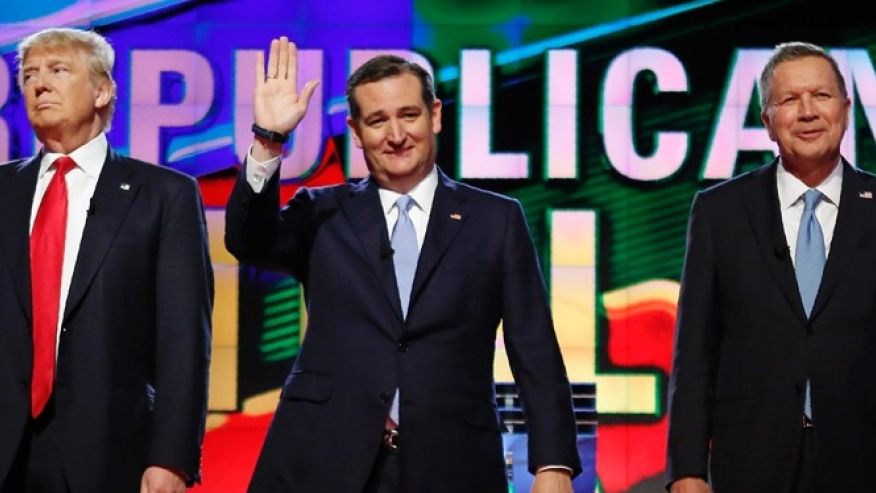RNC Chairman: Candidates Who Don’t Back Trump May Not Be Allowed to Run Again
 Republican National Committee Chairman Reince Priebus on Sunday suggested he could ban “Never Trump” candidates should they try to make another run for the presidency.
Republican National Committee Chairman Reince Priebus on Sunday suggested he could ban “Never Trump” candidates should they try to make another run for the presidency.
Priebus said the former primary challengers who’ve refused to support Republican presidential nominee Donald Trump could face consequences if they fail to back Trump in the stretch-run to Election Day.
“Those people need to get on board,” Priebus told “Face the Nation.” “And if they’re thinking they’re going to run again some day, I think that we’re going to evaluate the process – of the nomination process and I don’t think it’s going to be that easy for them.”
Priebus didn’t specifically name the group, but Ohio Gov. John Kasich, Texas Sen. Ted Cruz and former Florida Gov. Jeb Bush are the most prominent ex-GOP primary candidates to refuse to support Trump.
Cruz and Bush were locked in particularly nasty verbal spats during the campaign with Trump, who termed his opponents “Lyin’ Ted” and “Low-Energy Jeb.” Though Kasich and Trump rarely went toe-to-toe, Kasich was the last Trump challenger to drop out of the race, and despite the Republican National Convention being held in Cleveland, the Ohio governor didn’t set foot in Quicken Loans Arena. Cruz spoke at the convention, but he was booed off the stage when he told the assembled, largely pro-Trump crowd to “vote your conscience.”
Despite the intra-party squabbles, however, Priebus made his case by pointing to a pledge that each primary candidate signed vowing to support the eventual Republican nominee.
“People in our party are talking about what we’re going to do about this,” Priebus said. “I mean there’s a ballot access issue in South Carolina. In order to be on the ballot in South Carolina, you actually have to pledge your support to the nominee, no matter who that person is. So what’s the penalty for that? It’s not a threat, but that’s just the question that we have a process in place.
“And if a private entity puts forward a process and has agreement with the participants in that process, and those participants don’t follow through with the promises that they made in that process, what — what should a private party do about that if those same people come around in four or eight years?”
Cruz addressed the issue of the pledge during a talk to members of the Texas Republican delegation on July 21, the day after he was booed off stage in Cleveland.
“That pledge was not a blanket commitment that if you go and slander and attack [my wife], that I’m going to nonetheless come like a servile puppy dog and say thank you very much for maligning my wife and maligning my father,” Cruz said.
Kasich said in June on MSNBC that he was likely to break the pledge.
“You know, people even get divorces,” Kasich said.
